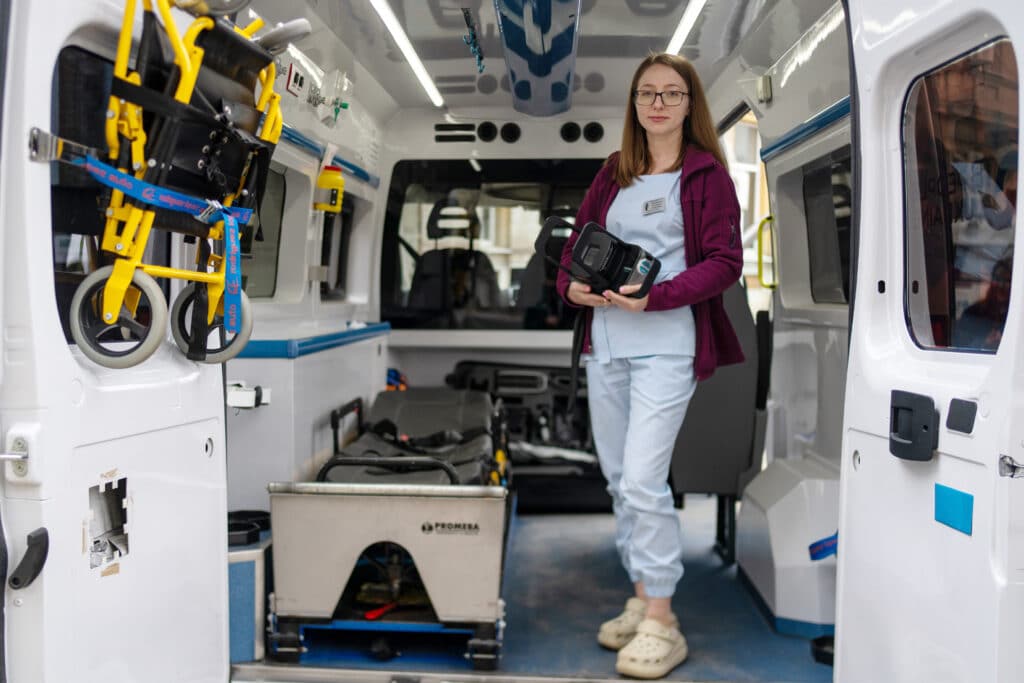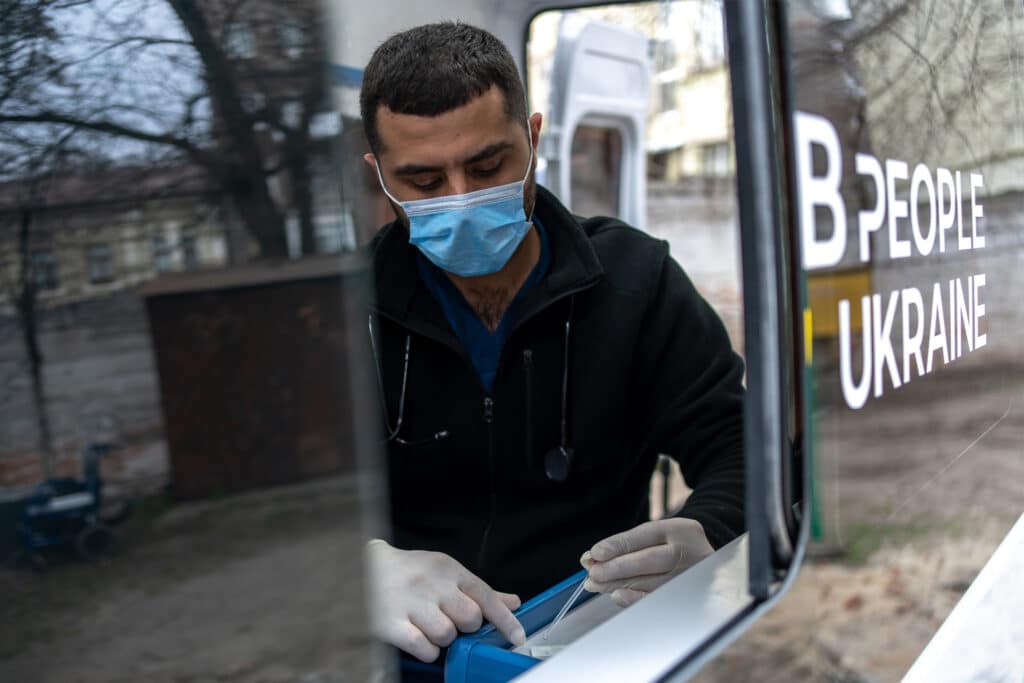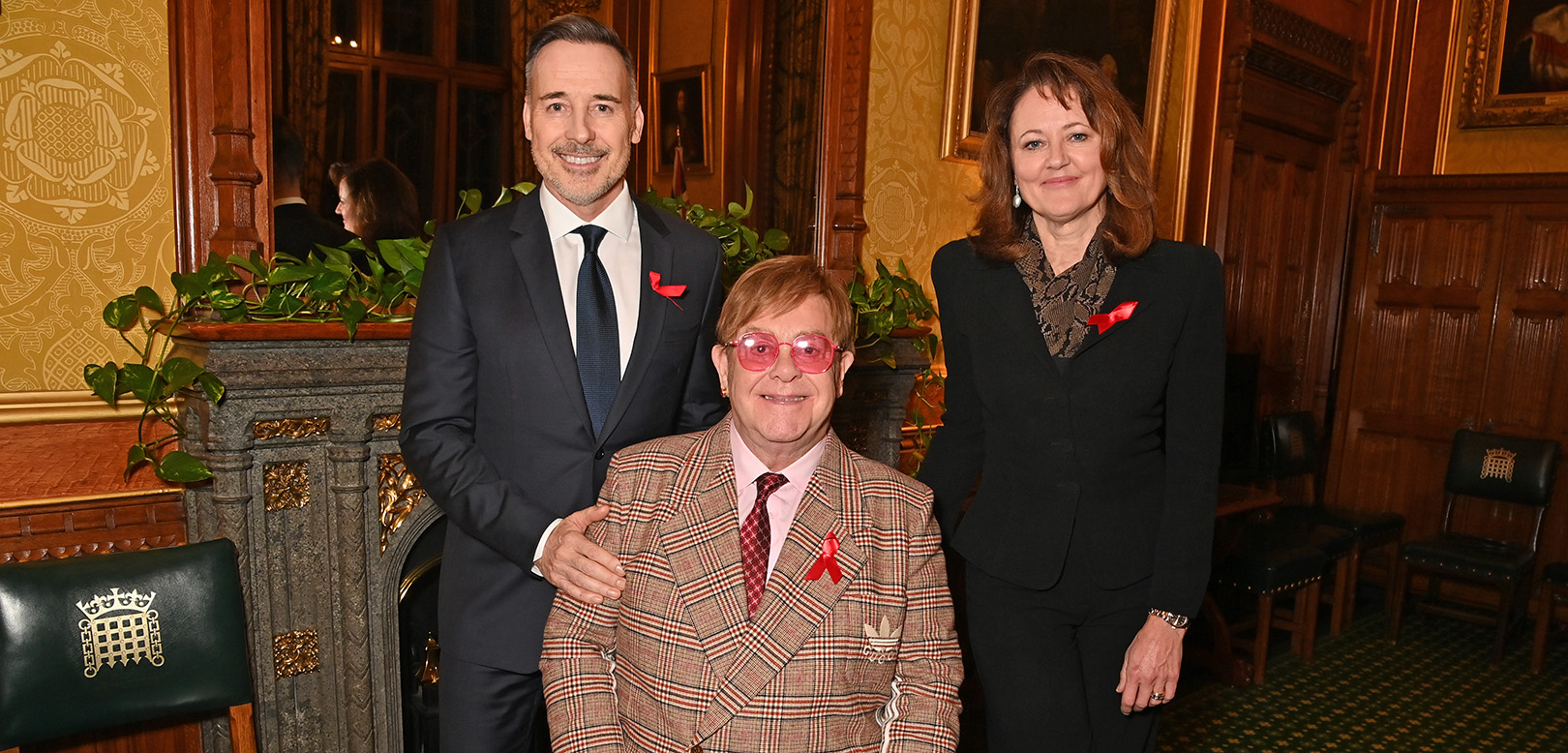Sterile gloves, surgical masks, boxes of fresh test kits, and a portable X-ray machine the size of a suitcase— all of this fits inside a white minivan. A field team of doctors from Dnipro in Ukraine is preparing for another mission.
For the four doctors on the team, a challenging day lies ahead. They plan to test around 130 people for HIV and viral hepatitis, and to X-ray each of them to screen for tuberculosis.
Testing is a must. Tuberculosis is still widespread across the region. HIV and hepatitis, sadly, are also present. And the problem is that people can’t always make it to the hospital. So, we come to them.
Liudmyla Rodionova, radiologist in the mobile team.HIV and TB
Tuberculosis (TB) is one of the leading causes of death among people living with HIV because HIV weakens the immune system, making it much harder for the body to fight TB bacteria. People living with HIV are 16 times more likely to become ill with TB compared to those without HIV. When someone has both TB and HIV, it is called co-infection.
Even before the current conflict began, Ukraine already had high rates of HIV and tuberculosis. Since February 2022, more than 2,000 attacks on medical facilities have occurred, creating growing barriers for people across Ukraine to access the healthcare they need. The situation is especially severe for those living near the frontline.
Mobile testing
The Elton John AIDS Foundation is funding vital work by our partner, TB People Ukraine, to deliver testing and treatment for tuberculosis, HIV, and hepatitis B and C in Eastern and Central Ukraine. Using two mobile diagnostic units equipped with portable X-ray machines, the team is reaching communities near the frontlines where access to healthcare is severely limited.
“This suitcase—that’s the X-ray machine,” explains Liudmyla Rodionova, pointing to the gear she uses in the field. “There’s a cable and a button that works it remotely. We also bought a protective screen that covers the lab technician head-to-toe to shield them from radiation.”

Beyond the immediate dangers of injury and displacement, the conflict has triggered a surge in tuberculosis cases. TB is an airborne disease, and people living near the frontlines are often sheltering in damaged buildings that are damp and poorly ventilated—conditions where the bacteria can easily spread. “Tuberculosis bacteria can be killed by UV light or disinfectants,” Rodionova adds, “but you can’t really sterilize areas like this near the frontline. It’s putting people’s lives at risk.”
In addition to environmental risks, intense stress and trauma are weakening immune systems, leading to flare-ups of chronic illnesses. That’s why early diagnosis and mobile outreach are not just helpful—they’re lifesaving. “At first, there might be no symptoms. People often feel fine, but they can still be spreading the infection,” she says.
Once a diagnosis is confirmed, the mobile team refers the patient to specialists immediately — to isolate them from others and begin treatment without delay.
Everyone should get tested
Wearing sterile gloves, Anar Hamiev, a resident doctor in the mobile medical unit, carefully tears open a rapid HIV test kit. He pricks the patient’s finger, places a drop of blood on the test strip, and moves on. His motions are swift and precise — Anar repeats this process dozens of times during a single mission.
“You’ll see the result in ten minutes. It’s a fast, convenient, and effective way to test for infection in the field,” Anar explains.

Because of the war — especially in eastern Ukraine — many medical facilities have shut down. The mobile unit reaches people who can’t travel to a hospital or clinic, offering care where it’s needed most.
In addition to testing for HIV and viral hepatitis, Anar and his fellow doctors — Nataliia Falkivska and Yana Serehina — also counsel patients and refer them to AIDS centers to begin antiretroviral therapy (ART) as soon as possible.
Since the conflict began, Nataliia has treated many patients who didn’t know they were HIV positive. But the team also faces another challenge: stigma.
HIV is still heavily stigmatized in Ukraine. Even the war hasn’t changed that.
Yana, doctor in the mobile medical unit.Yana uses field visits not only to test, but to offer extended consultations — providing information, support, and clarity in moments of stress.
Ten minutes after the first test of the day, Anar checks the result and records it. It’s negative. But many more patients await — and the day is just beginning.


